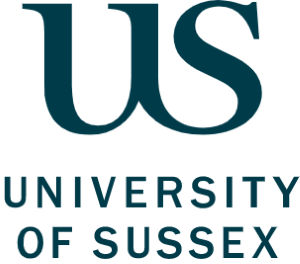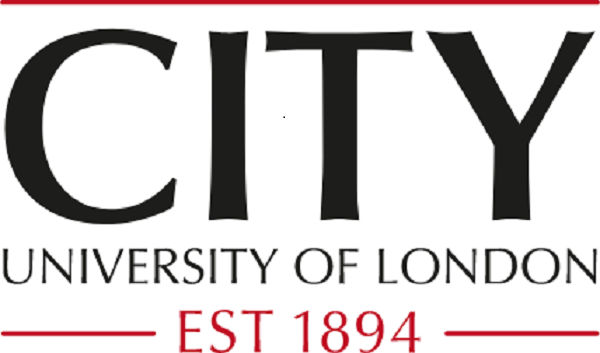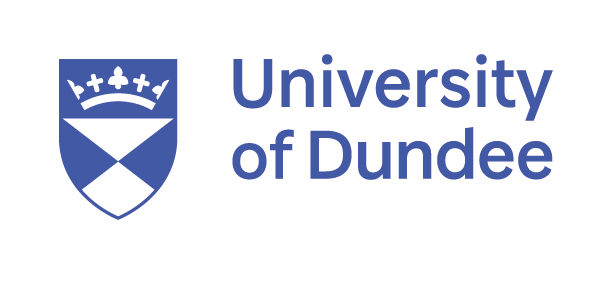352 Masters in Law Courses in UK- Apply Now!
Starting a Master's in Law program in the UK is a fantastic way to broaden your legal knowledge, develop your professional abilities, and obtain a worldwide perspective. This blog will help you through the intricacies of procuring a Master's in Law in the UK by framing significant details, including course features, the top colleges, entrance criteria, employment opportunities, and more. The UK is a top choice for aspirant legal professionals because of its solid legal heritage, renowned colleges, and diversified cultural surroundings. Join us as we examine the many opportunities available to you as we dig into the realm of legal education.
Why Study Masters in Law in the UK ?
Studying law in the UK offers numerous advantages and holds great appeal for aspiring legal professionals. Here are compelling reasons why pursuing a Master's in Law in the UK is a wise choice:
- World-Class Education: The UK is notable for its top-notch universities and recognized graduate schools, which offer top-level training that is exceptionally respected all over the world. You can be sure that you'll obtain a thorough legal education of the greatest caliber by attending one of the UK's renowned institutions, renowned for their demanding academic standards, outstanding professors, and cutting-edge research possibilities.
- Diverse Specialisations: Universities in the UK offer a variety of specializations in the study of law, enabling you to customize your studies to fit your own interests and professional goals. Whether you have a strong interest in intellectual property, commercial law, human rights, or international law, you may discover specialized programs that are tailored to your needs and provide you with in-depth knowledge in your field of specialization.
- Legal Tradition and Expertise: The UK is a great place to study law because of its longstanding legal tradition. The UK presents a singular chance to learn from seasoned legal practitioners and get insights into the historical and cultural underpinnings of the law thanks to its long-standing legal traditions and powerful legal system. This exposure to the UK's legal expertise enhances your understanding and appreciation of the field.
- International Exposure: Studying law in the UK exposes you to a multicultural society and diverse legal systems. You will be able to meet with classmates from various origins, cultures, and legal traditions because the UK draws students from all over the world. In order to operate in a more interconnected globe, you will need to develop a global perspective and increase your cultural competency in this international context.
- Networking Opportunities: The UK provides abundant networking opportunities, allowing you to establish valuable connections within the legal industry. Through guest lectures, seminars, and career events, you can engage with renowned legal professionals, leading law firms, and international organizations. These connections can open doors to internships, mentorship programs, and potential employment opportunities, giving you a competitive edge in your legal career.
- Career Advancement: A Master's in Law from a UK university significantly enhances your career prospects. The UK legal qualification is highly regarded worldwide, opening up diverse career opportunities in various sectors. Whether you aspire to practice law as a solicitor or barrister, work in corporate law, pursue a career in academia or legal research, or explore the field of human rights and advocacy, a UK degree equips you with the knowledge, skills, and credibility to excel in your chosen path.
Highlights of Master's in Law in the UK
Here are the key details regarding the Masters in Law program in the UK:
Duration |
Average Fees |
Course Type |
General Eligibility |
Exams Required |
1 year |
£10,000-£30,000 |
Full-time/Part-time |
Bachelor's degree in law or a related field (2:1 or equivalent) |
IELTS/TOEFL (English language proficiency) |
Types of Masters in Law Specializations in the UK
The field of law offers diverse specializations, catering to various interests and career paths. In the UK, you can pursue specializations such as
1. International Law
2. Human Rights Law
3. Commercial Law
4. Intellectual Property Law
5. Environmental Law
6. Criminal Law
7. Corporate Law
Best Universities for Master's in Law in the UK
When considering a Master's in Law program, several esteemed universities in the UK stand out for their academic excellence and comprehensive curriculum. Here are some of the top universities offering this program:
University Name |
World Ranking |
Programs Offered |
Average Fees (£) |
Admission Deadlines |
University of Oxford |
2 |
LLM in Law |
£25,000 - £30,000 |
January 2024 intake - October 2023; September 2024 intake - March 2024 |
University of Cambridge |
3 |
LLM in Law |
£20,000 - £25,000 |
October 2023 intake - December 2022; October 2024 intake - December 2023 |
London School of Economics and Political Science (LSE) |
7 |
LLM in Law |
£20,000 - £25,000 |
December 2022 (for October 2023 intake); December 2023 (for October 2024 intake) |
Course Curriculum of Masters in Law in the UK
A broad range of topics and concerns are covered in the UK's Master in Law program, which provides students with in-depth legal knowledge and strong analytical abilities. The following subject areas are frequently included in the curriculum:
1. Legal Research Methods
2. Constitutional Law
3. Contract Law
4. Criminal Law
5. Tort Law
6. European Union Law
7. International Human Rights Law
8. Intellectual Property Law
9. Commercial Law
10. Dissertation/Thesis
Eligibility Criteria for Masters in Law in the UK
To pursue a Master's in Law program in the UK, prospective students must meet certain eligibility criteria. The following requirements are typically necessary:
1. Academic Qualifications: Applicants should possess a Bachelor's degree in law or a related field with a minimum classification of 2:1 (or its equivalent). Some universities may consider candidates with a 2:2 classification based on other qualifications or relevant work experience.
2. English Language Proficiency: English language proficiency is essential for academic achievement. IELTS (International English Language Testing System) or TOEFL (Test of English as a Foreign Language) scores or other results from recognized language exams are typically needed by international students to prove their language competency. Universities may have different minimum requirements. However, an average IELTS score requirement is 6.5 or higher, with a minimum of 6.0 in each component.
3. Additional Requirements: Certain universities may have specific prerequisites or additional requirements for admission to their Master's in Law program. These can include:
- Relevant Work Experience: Some universities may prefer or require applicants to have relevant work experience in the legal field, particularly for specialized programs or specific areas of law.
- Personal Statement: A well-crafted personal statement or statement of purpose is often required. This document permits candidates to exhibit their inspiration, scholarly accomplishments, vocation objectives, and how the program aligns with their desires.
- Letters of Recommendation: Universities may request letters of recommendation from academic professors, employers, or other professionals who can attest to the applicant's abilities, character, and potential for success in the program.
- Research Proposal: For research-focused Master's programs, applicants may need to submit a research proposal outlining their intended area of research and the research questions they plan to explore.
- CV/Resume: A comprehensive curriculum vitae (CV) or resume detailing educational background, work experience, extracurricular activities, and any other relevant achievements or qualifications is often required.
- Application Fee: Applicants are typically required to pay an application fee when submitting their application. The fee amount may vary among universities
Admission Requirements for Masters in Law in the UK
The admission requirements for a Master's in Law program in the UK may vary slightly among universities. Generally, the following documents and qualifications are required:
- Completed application form
- Academic transcripts and certificates
- Personal statement or statement of purpose
- Letters of recommendation
- CV or resume
- English language proficiency test scores (IELTS/TOEFL)
- Research proposal (for certain programs)
- Application fee
In addition to these requirements, international students may need to fulfill visa requirements and provide proof of financial capability.
Admission Process for Masters in Law in the UK
The admission process for a Master's in Law program in the UK typically involves the following steps:
1. Research and shortlist universities and programs based on your interests and career goals.
2. Review the admission requirements and deadlines for each university.
3. Prepare and gather all the necessary documents.
4. Complete and submit the online application form and the required documents.
5. Pay the application fee.
6. Await the admission decision, which may take several weeks or months.
7. If accepted, follow the university's instructions for accepting the offer and completing the enrollment process.
Cost of Studying Masters in Law in the UK
Depending on the university and program, the cost of a Master's in Law program in the UK might change. In addition, pre-arrival expenses must be taken into account. Here is a broad breakdown of the costs concerned:
- Tuition Fees: £10,000 - £30,000 per year (average)
- Pre-arrival Costs: IELTS exam fees (£160 - £180), visa application fees (£348 - £475), health insurance, travel expenses, accommodation deposits, etc.
It is essential to check the specific fees and costs associated with the chosen university and program.
Scholarships for Masters in Law in the UK
Various scholarships are available to support international students pursuing a Master's in Law in the UK. Here are some notable scholarships:
1. Chevening Scholarships:
- Eligibility: Students from eligible countries with outstanding academic records and leadership potential.
- Deadline: Typically around November each year.
- Amount: Full or partial funding for tuition fees, living expenses, and other costs.
2. Rhodes Scholarships:
- Eligibility: Students with exceptional academic achievements and leadership qualities.
- Deadline: Varies by country/region.
- Amount: Fully funded scholarships covering tuition, living expenses, and travel allowances.
3. Commonwealth Scholarships:
- Eligibility: Citizens of Commonwealth countries with excellent academic records.
- Deadline: Varies by country.
- Amount: Full or partial funding for tuition fees, living expenses, and travel costs.
Scholarship Name |
Eligibility |
Deadline |
Amount |
Chevening Scholarships |
Outstanding students |
November (annually) |
Full/partial funding |
Rhodes Scholarships |
Exceptional candidates |
Varies |
Fully funded |
Commonwealth Scholarships |
Citizens of Commonwealth countries |
Varies by country |
Full/partial funding |
Career Opportunities after Masters in Law in the UK
Completing a Master's in Law in the UK opens up a plethora of career opportunities in various sectors. Graduates can pursue roles such as
1. Solicitor/Barrister
2. Legal Consultant
3. Corporate Counsel
4. Legal Researcher
5. Human Rights Advocate
6. Compliance Officer
7. Policy Analyst
8. Academician
The table below provides a snapshot of average salaries for different job roles in the UK:
Job Role |
Average Salary (per annum) |
Solicitor |
£40,000 - £70,000 |
Barrister |
£45,000 - £200,000 |
Legal Consultant |
£50,000 - £100,000 |
Corporate Counsel |
£60,000 - £120,000 |
Legal Researcher |
£30,000 - £50,000 |
Human Rights Advocate |
£35,000 - £70,000 |
Conclusion
Pursuing a Master's in Law in the UK offers a gateway to an enriching educational experience and a promising legal career. With its prestigious universities, diverse specializations, and global recognition, the UK is an ideal destination for aspiring legal professionals. The rich legal tradition, international exposure, and networking opportunities contribute to a comprehensive and well-rounded education. From top-ranked institutions to a wide range of job prospects, students gain valuable knowledge, skills, and connections to thrive in the legal field. Whether it's international law, human rights, commercial law, or any other specialization, the UK provides the platform to unlock your legal expertise and shape a successful future.
- Level of study
- Streams
- Countries
- Cities
- Fees
- Exams Accepted
- Course Duration
- Masters
- Clear All

MSt in International Human Rights Law
University of Oxford, UK
DURATION
2 YearsFEES
INR 15.16L/yrEXAMS
-INTAKE SESSION
-
More courses at University of OxfordView All

MA Social Policy and Law
The University of Edinburgh, UK
DURATION
4 YearsFEES
INR 23.05L/yrEXAMS
-INTAKE SESSION
-

LLM Intellectual Property Law
University of Manchester, UK
DURATION
1 YearFEES
INR 23.17L/yrEXAMS
IELTS-7.0INTAKE SESSION
SEP 2025
More courses at University of ManchesterView All

International Tax Law Online LLM (Part Time)
Kings College London, UK
DURATION
2 YearsFEES
INR 9.89L/yrEXAMS
-INTAKE SESSION
-
More courses at Kings College LondonView All
DURATION
2 YearsFEES
INR 16.54L/yrEXAMS
-

MRes Security, Conflict and Human Rights
University of Bristol, UK
DURATION
1 YearFEES
INR 19.65L/yrEXAMS
IELTS-6.5INTAKE SESSION
SEP 2025
More courses at University of BristolView All
DURATION
1 YearFEES
INR 21.06L/yrEXAMS
IELTS-7.0

International Economic Law (LLM)
The University of Warwick, UK
The International Economic Law (LLM) offered by University of Warwick is an advanced Masters course designed for students aspiring to become professionals in Law. Students will gain hands-on experience through practical exercises and real-world projects, allowing them to apply the concepts learned in class. The curriculum is carefully designed to ensure that students develop a strong foundation in Law and acquire the skills needed to solve complex problems in the industry. Upon completion of this course, students will be well-prepared to tackle the challenges of Law and pursue rewarding career opportunities such as Lawyer/Attorney, Legal Consultant, Legal Researcher, Legal Analyst, Judge/Magistrate, Legal Officer.
DURATION
1 YearFEES
INR 23.91L/yrEXAMS
-INTAKE SESSION
SEP 2025
More courses at The University of WarwickView All

LLM in Corporate Law
Durham University, UK
DURATION
1 YearFEES
INR 23.90L/yrEXAMS
-INTAKE SESSION
SEP 2025
More courses at Durham UniversityView All
DURATION
1 YearFEES
INR 23.97L/yrEXAMS
-

LLM Corporate and Commercial Law LLM
The University of Sheffield, UK
DURATION
1 YearFEES
INR 20.37L/yrEXAMS
-INTAKE SESSION
SEP 2025
More courses at The University of SheffieldView All

Law LLM (by research)
Newcastle University, UK
DURATION
1 YearFEES
INR 1.87L/yrEXAMS
-INTAKE SESSION
SEP 2025
More courses at Newcastle UniversityView All

Global Health Law and Governance MRes
Queen Mary University of London, UK
DURATION
1 YearFEES
INR 19.40L/yrEXAMS
-INTAKE SESSION
SEP 2025
More courses at Queen Mary University of LondonView All
Recommended articles for you

Law MPHIL
Lancaster University, UK
DURATION
3 YearsFEES
INR 18.95L/yrEXAMS
-INTAKE SESSION
-
More courses at Lancaster UniversityView All
DURATION
1 YearFEES
INR 21.05L/yrEXAMS
-

Graduate Diploma in Law (Graduate Diploma)
Cardiff University, UK
DURATION
1 YearFEES
INR 20.45L/yrEXAMS
-INTAKE SESSION
SEP 2025
More courses at Cardiff UniversityView All
DURATION
1 YearFEES
INR 20.45L/yrEXAMS
-

DPLP - Professional Legal Practice, PgDip
University of Aberdeen, UK
DURATION
9 MonthsFEES
INR 8.97L/yrEXAMS
IELTS-6.5INTAKE SESSION
SEP 2025
More courses at University of AberdeenView All
DURATION
1 YearFEES
INR 22.57L/yrEXAMS
IELTS-6.5
DURATION
1 YearFEES
INR 22.57L/yrEXAMS
IELTS-6.5
DURATION
1 YearFEES
INR 22.57L/yrEXAMS
IELTS-6.5
DURATION
1 YearFEES
INR 22.57L/yrEXAMS
IELTS-6.5

PgDip in Youth Justice
Queens University Belfast, UK
DURATION
1 YearFEES
INR 12.22L/yrEXAMS
IELTS-6.5INTAKE SESSION
SEP 2025
More courses at Queens University BelfastView All
DURATION
2 YearsFEES
INR 35.67L/yrEXAMS
IELTS-6.5

International Financial Law LLM
University of Sussex, UK
DURATION
1 YearFEES
INR 18.90L/yrEXAMS
-INTAKE SESSION
SEP 2025
More courses at University of SussexView All
DURATION
1 YearFEES
INR 18.90L/yrEXAMS
-

MA Human Rights and Global Ethics
University of Leicester, UK
DURATION
1 YearFEES
INR 16.86L/yrEXAMS
-INTAKE SESSION
SEP 2025
More courses at University of LeicesterView All

PG Certificate Children & Young People in Conflict with the Law
University of Strathclyde, UK
DURATION
1 YearFEES
INR 2.47L/yrEXAMS
-INTAKE SESSION
JAN 2026
More courses at University of StrathclydeView All
DURATION
1 Year 8 MonthsFEES
INR 4.94L/yrEXAMS
-
DURATION
2 YearsFEES
INR 7.41L/yrEXAMS
-
DURATION
1 Year 2 MonthsFEES
INR 17.86L/yrEXAMS
-

Legal Practice Course Postgraduate Certificate
City, University of London, UK
DURATION
6 MonthsFEES
INR 11.27L/yrEXAMS
IELTS-7.0INTAKE SESSION
SEP 2025
More courses at City, University of LondonView All
DURATION
1 YearFEES
INR 19.08L/yrEXAMS
IELTS-7.0
DURATION
1 YearFEES
INR 19.08L/yrEXAMS
IELTS-7.0
DURATION
1 YearFEES
INR 19.08L/yrEXAMS
IELTS-7.0

Qualifying Law Degree LLM
Birkbeck University of London, UK
DURATION
2 YearsFEES
INR 11.10L/yrEXAMS
-INTAKE SESSION
OCT 2025
More courses at Birkbeck University of LondonView All
DURATION
1 YearFEES
INR 18.25L/yrEXAMS
-

Professional Legal Practice PGDip
University of Dundee, UK
DURATION
9 MonthsFEES
INR 8.41L/yrEXAMS
IELTS-6.5INTAKE SESSION
SEP 2025
More courses at University of DundeeView All
DURATION
1 YearFEES
INR 20.05L/yrEXAMS
IELTS-6.5
DURATION
1 YearFEES
INR 20.05L/yrEXAMS
IELTS-6.5
DURATION
1 YearFEES
INR 20.05L/yrEXAMS
IELTS-6.5
DURATION
1 YearFEES
INR 20.05L/yrEXAMS
IELTS-6.5
DURATION
1 YearFEES
INR 20.05L/yrEXAMS
IELTS-6.5
TRENDING SEARCHES
- Masters in Automobile Engineering in UK
- Masters in Mechanical Engineering in UK
- Masters in Civil Engineering in UK
- Masters in Computer Science in UK
- Masters in Fashion Designing in UK
- Masters in Dentistry in UK
- Masters in Psychology in UK
- Masters in Education in UK
- Masters of Law in UK
- Masters in Chemical Engineering in UK
- Masters in Economics in UK
- Masters in Pharmacy in UK
- Masters in Biomedical Engineering in UK
- Business Analytics Courses in UK
- Accounting Courses in UK
- Cyber Security Courses in UK
- Masters in Sports Management in UK
- Physiotherapy Courses in UK
- Masters in Social Work in UK
- Hotel Management Courses in UK
- Supply Chain Management Courses in UK
- Masters in Data Analytics in UK
- Business Management Courses in UK
- Nursing Courses in UK
- Data Science Courses in UK
- Sports Management Courses in UK
- Management Courses in UK
- Masters in Accounting and Finance in UK
- Data Analytics Courses in UK
- Masters in Human Resource Management in UK
- Public Health Courses in UK
- Sports Management Courses in UK
- Masters in Supply Chain Management in UK
- Digital Marketing Courses in UK
- Masters in Marketing in UK
- Project Management Courses in UK
- Biomedical Science in UK
- Interior Designing Courses in UK
- Healthcare in UK
- Language in UK
- Fashion Designing Courses in UK
- Law in UK
- Aerospace Engineering in UK
- Medicine Courses in UK
- Pharmacy Courses in UK
- Psychology Courses in UK
- Computer Science Courses in UK
- Photography Courses in UK
- Northumbria University
- University of Portsmouth
- De Montfort University
- Sheffield Hallam University
- University of West London
- Queen Mary University of London
- University of Exeter
- University of Bristol
- Coventry University
- London Metropolitan University
- University of Cambridge
- University of Oxford
- University of Leicester
- Imperial College London
- Birmingham City University
- Kings College London
- Aston University
- University College London
- University of Strathclyde
- Study in UK for indian students
- Bachelors in UK
- Masters in UK
- Courses in UK
- Universities in UK
- Bachelors in Computer Science in UK
- Bachelors in Economics in UK
- Bachelors of Game Designing in UK
- BA in UK
- Bachelors in Psychology in UK
- Bachelors in Mechanical Engineering in UK
- Bachelors of Law in UK
Disclaimer
All information provided on this page is for general use and upGrad Abroad is not responsible for any errors or omissions. The Universities involved in this Program are accredited/recognized in the countries where they are established. Relevant terms and conditions apply.Any action taken upon the information found on this website is strictly at your own risk.



